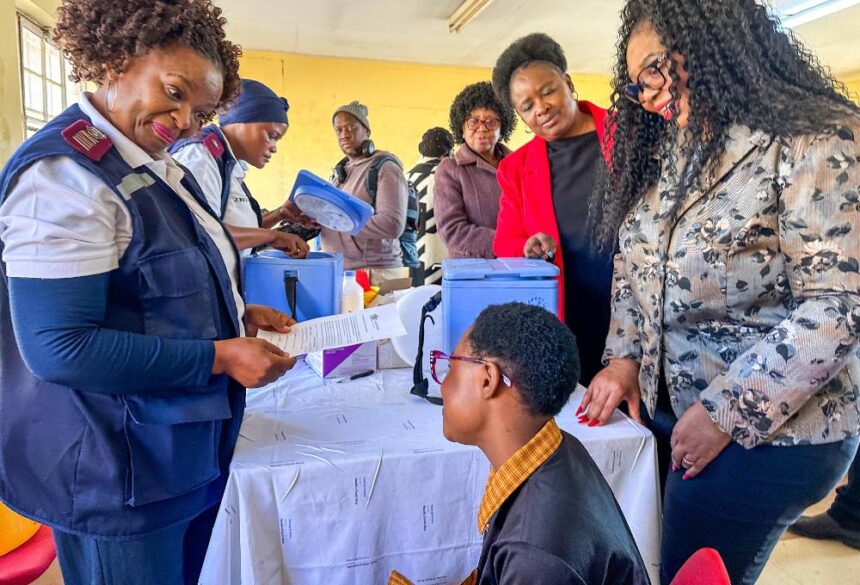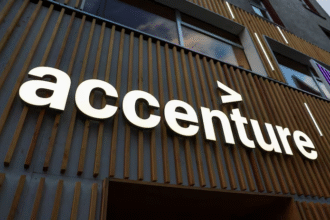Months after a measles outbreak was declared in South Africa, there are still parents who are hesitant to get their children vaccinated. According to the National Institute for Communicable Diseases, more than 480 out of the 700 reported cases in the country have been identified in Gauteng.
It is crucial for children to receive two doses of the measles vaccine – one at 6 months and another at 12 months – in order to be fully protected. However, the uptake of the vaccine remains low. The Gauteng Department of Health (GDoH) has expressed concern about the immunization coverage for the second dose of the measles vaccine, which is below 75% in both Johannesburg and Tshwane. This level of coverage is considered insufficient to prevent outbreaks.
The reluctance to vaccinate children is often attributed to personal, cultural, or religious beliefs against vaccination. In response, the GDoH is actively engaging with communities to emphasize the importance of vaccinating children against the highly contagious disease. Measles can lead to serious complications such as pneumonia, ear infections, blindness, brain damage, and even death.
Despite the efforts of the department, there are still parents like Nomalanga Ndlovu*, a mother in Soweto, who are hesitant to vaccinate their children. Ndlovu expressed distrust in the government, citing confusion during the COVID-19 pandemic as a reason for her reluctance. She questions the contents of the vaccine and how her child may react to it, highlighting a lack of confidence in the vaccination process.
On the other hand, Selinah Moeng from the Westrand received a letter from her children’s school informing her about the vaccination drive. Despite not fully understanding the disease or the outbreak, Moeng recognizes the importance of vaccination and signed the consent form for her children. She believes that vaccination is essential to keeping her children healthy and protected.
The GDoH has launched a social mobilization campaign using various media platforms to raise awareness and encourage parents to vaccinate their children. The department aims to vaccinate 4 million children between the ages of 6 months and 15 years by September 12.
In conclusion, while some parents remain hesitant about vaccinating their children, efforts are being made to educate and encourage communities about the importance of vaccination in preventing the spread of measles. It is crucial for parents to make informed decisions based on credible information to protect the health and well-being of their children.
*Not her real name In recent years, there has been a growing trend towards sustainable living and eco-friendly practices. From reducing waste to using renewable energy sources, people all over the world are taking steps to protect the environment and preserve natural resources for future generations.
One of the key components of sustainable living is reducing our reliance on single-use plastics. These plastics, which are used once and then thrown away, are a major contributor to pollution and environmental degradation. They can take hundreds of years to decompose, and in the meantime, they can harm wildlife and leach harmful chemicals into the soil and water.
To combat this issue, many people are turning to reusable alternatives to single-use plastics. Reusable water bottles, shopping bags, and food containers are becoming increasingly popular as people seek to reduce their plastic waste. By using these items instead of their disposable counterparts, individuals can significantly reduce the amount of plastic they send to landfills and incinerators.
In addition to using reusable products, many people are also making an effort to support businesses that prioritize sustainability. From eco-friendly clothing brands to zero-waste grocery stores, there are a growing number of companies that are committed to reducing their environmental impact. By choosing to support these businesses, consumers can help drive demand for more sustainable practices and products.
Another important aspect of sustainable living is reducing energy consumption and using renewable energy sources whenever possible. Solar panels, wind turbines, and geothermal heating systems are all examples of renewable energy technologies that can help reduce our reliance on fossil fuels and lower our carbon footprint. By investing in these technologies, individuals can not only save money on their energy bills but also help combat climate change.
Overall, sustainable living is about making conscious choices that prioritize the health of the planet and future generations. By reducing waste, supporting sustainable businesses, and using renewable energy sources, individuals can make a positive impact on the environment and help create a more sustainable future for all.








